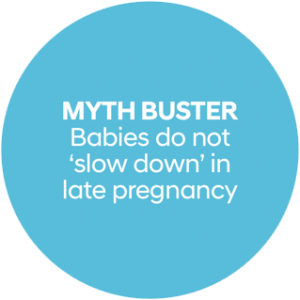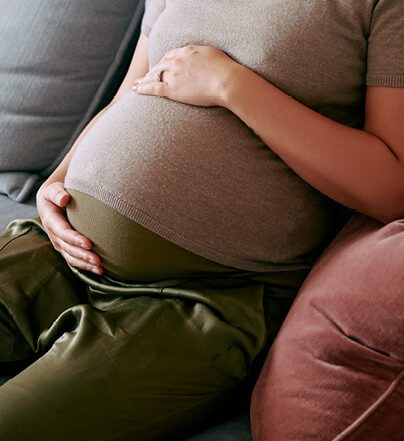
Being aware of your baby’s movements during pregnancy is one of the simplest things you can do to help keep your baby safe and healthy.
Over half of all women who had a stillbirth noticed that their baby’s movements had slowed down or stopped, so we know that it is an important indicator.
Regular and healthy movements are a good sign of baby’s wellbeing. There is no ‘normal’ when it comes to movements – they don’t all ‘feel’ the same way. For some mums it may feel like a kick, and for others more like a glide or even a roll.
Getting to know the pattern of your baby’s movements is important. There is no set number of movements, but you should get familiar with your baby’s own pattern and learn what is normal for them.
To help you become familiar with your baby’s movements, try sitting or lying down in a quiet place. Try to relax and focus on feeling for your baby’s movements. Every baby is different – some babies are very active others are not.
You will start to feel your baby move between weeks 16 and 24 of pregnancy and you should feel movements right up until they are born, even during labour.
It is a myth that movements slow down or become weaker towards the end of pregnancy. It is also a myth that if you feel a change in movements, you can have something to eat or drink to stimulate your baby. This does not work.
When a baby is unwell, they may try to save energy by slowing down their movements. This may be the first sign of a problem.
If you are concerned about a change in your baby’s movements, contact your maternity care professional immediately. You are not wasting their time. No-one knows your baby better than you do – it’s your body and your baby, so trust your instincts.








